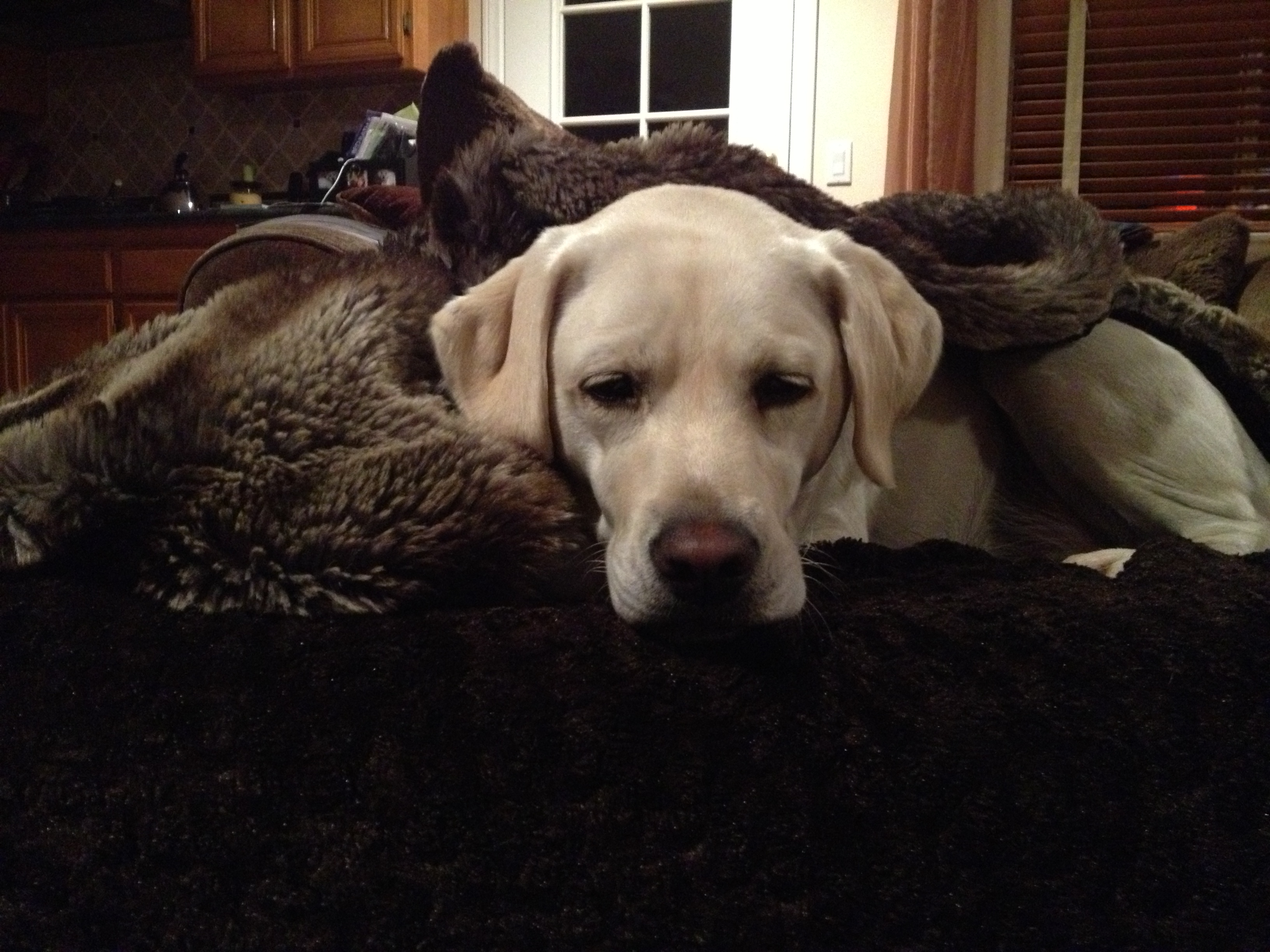Recent Posts
- Home
- LEXI’S BLOG
- 5 Ways to help your Dog overcome his fears
5 Ways to help your Dog overcome his fears
Posted by on

OK I confess I have a couple phobias but thankfully not too many ~ The 2 that I have is Thunder and when my Daddy yells at the TV during Football Season…. If you have any here are some great tips to helping overcome and or deal with them! I know for me just a snuggle, a pat on the belly from my Momma or a "Treat" really helps me :)
Dog phobias aren’t often talked about, but we’ve all had a dog who was deathly afraid of something- thunderstorms, baths, being alone, the dreaded vacuum. It can be a horrible experience when your fur-baby is upset and you feel powerless to help. But did you know you can help your dog overcome his fears- at least somewhat?Just like with people, most doggie fears are rooted in a bad experience. Maybe he went to the veterinarian and got shots that hurt and the dog in line before him was screaming during his entire examination. Maybe your dog could even smell the fear and anguish of the dog who came in that morning to be put to sleep after being hit by a car. Dogs are extremely sensitive creatures, and they amplify the emotions of the humans and animals around them.
One of the best ways to help your dog get over his fears (or at least reduce them to a manageable level) is to replace those memories with good ones. We can condition our fur babies to learn a new reaction when those once-fearful situations occur. Here’s how:
- Food is usually a good motivator. One of the easiest ways to change your dog’s mind about something is to involve yummy food. If he’s afraid of the vacuum, turn it off and leave it near his food bowl during meal times every day. Eventually, he’ll learn to be less fearful of the monster and may even decide it’s not out to get him after all.
- We’re part of the problem. One of the things we often do unconsciously is to get nerved up when we know our dogs will become upset over something. We feel anxious the night before a grooming appointment when our dog is afraid of the bath, or worry about how he’ll react the next day during his veterinarian appointment. Your dog can sense this, so try to relax, be intentional about being calm and relaxed to avoid pushing your anxiety off on your dog.
- Rewarding bad behavior is a bad idea. As a dog mom, I tend to want to soothe my dogs when they’re upset. I pet them and cradle them and give them kisses and say nice comforting things about how much I love them and how it’s going to be okay. But in reality, I’m rewarding my dog for his bad behavior when I do this. He gets anxious and acts out, and I reward him with attention and affection which encourages his continued bad behavior- not very smart on my end. Instead, I now try to ignore his initial upset and remain calm myself. I then help him find his own happy place or let him self-soothe by asking him to get his favorite toy or by walking him into a quiet room to sit with me for a few minutes. I don’t coddle him- I don’t even pet him- I simply stay with him and serve as an example of leadership and calmness during his panic.
- Rewarding good behavior is key. When my dog finally manages to get it right and not freak out when the I drag out the mean-monster vacuum, I make sure to reward his appropriate behavior. He may give the vacuum the side eye, but as long as he’s not lunging and snarling at eh sight of his foe, I throw a little doggie treat party for him. The first couple of times I did this, he wasn’t sure what was going on. (He probably thought I was off my rocker.) But after it happened a few more times, he started connecting the dots between his calm reaction to the vacuum and my lavish rewards. Just be sure to use a high-level dog treat for this kind of conditioning to make it stick in his memory.
- Help him through the rough patches. Even a dog who’s making huge progress toward overcoming his fears can have a big setback. Don’t be discouraged. Just keep right on loving him. You can also give him a natural calming aid for dogs to help reduce his anxiety if needed.
When your dog has fears, it’s important to remember that no matter how unreasonable those fears seem to us, they are indeed very legitimate to him. Always treat him with kindness and respect. You never know, maybe he does know something about that vacuum that we don’t.
This Post Post Wast Brought To You By The Good Folks At TruDog.com:Written by Lori Taylor
Lori R Taylor lives in Cincinnati, Ohio and is the founder of TruDog . After losing her beloved Great Dane, Truman, to cancer, Lori was devastated and determined to help dogs live longer. She created the TruDog Nutrition System (TDNS), an amazing suite of veterinarian approved, all natural products, designed to help your dog live longer. This article is dedicated Truman and all the dogs who heal our hearts and make us whole. May your legacy be the light that saves the world.
Author's Website: http://TruDog.com
 Loading... Please wait...
Loading... Please wait...






